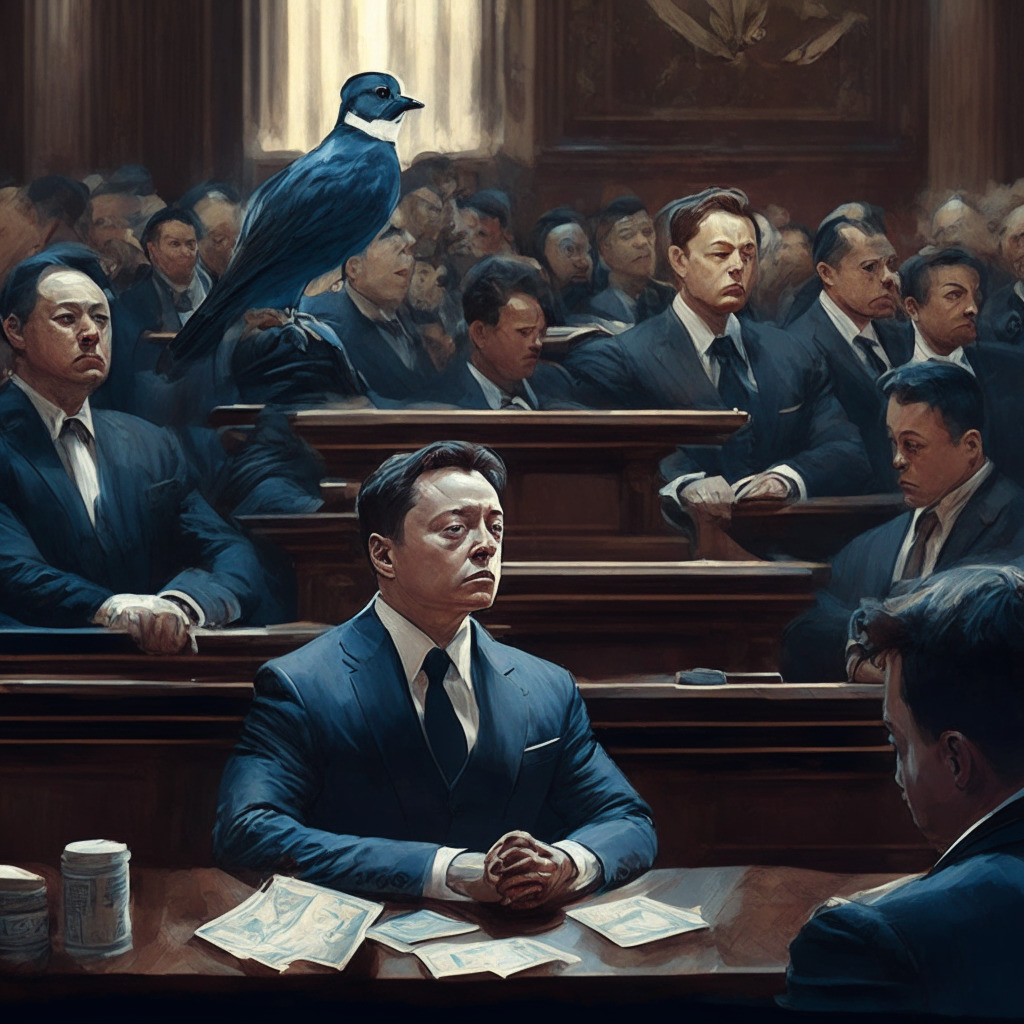Billionaire businessman Elon Musk has once again found himself in the headlines, this time entangled in a lawsuit alleging insider trading and market manipulation related to the popular cryptocurrency, Dogecoin. The lawsuit claims that Musk exploited various platforms, such as Twitter and his appearance on “Saturday Night Live,” to manipulate Dogecoin’s price and profit at the investors’ expense. However, one might argue that Musk’s publicity stunts and tweets are simply part of his online personality and might not have been maliciously intended.
According to the lawsuit filed in Manhattan federal court, Musk is accused of employing tactics like tweets, paid online influencers, and other publicity stunts to trade profitably through multiple Dogecoin wallets linked to him or his electric vehicle company, Tesla. Such actions allegedly caused financial losses for investors, while Musk reportedly enjoyed substantial gains. This presents a dilemma, as Musk’s influential position could have unknowingly swayed market decisions, even if not intentionally misleading.
The primary evidence in the lawsuit pertains to Musk’s sale of around $124 million worth of Dogecoin in April, coinciding with his decision to swap Twitter’s blue bird logo with Dogecoin’s Shiba Inu dog logo, reportedly resulting in a 30% price surge for the cryptocurrency. With Musk’s high public profile, it’s challenging to determine whether these actions were a calculated move or simply the outcome of his consistent presence and influence on social media.
Accusing Musk of a “deliberate course of carnival barking, market manipulation, and insider trading,” the investors argue that his activities have defrauded them while also promoting himself and his companies. They allege that Musk purposely inflated Dogecoin’s price by over 36,000% within two years, only for it to crash, causing substantial financial losses for multiple investors. However, it is crucial to consider whether investment decisions were their sole responsibility and whether Musk’s actions directly led to these losses.
These allegations are part of a proposed third amended complaint in an ongoing lawsuit that began in June of last year. Musk and Tesla previously requested dismissal of the second amended complaint, calling it a “fanciful work of fiction.” However, U.S. District Judge Alvin Hellerstein indicated that he would likely allow the third amended complaint, noting that the defendants wouldn’t face prejudice.
With the lawsuit filed in the U.S. Court of the Southern District of New York, Musk’s alleged actions regarding insider trading and market manipulation in relation to Dogecoin will be closely examined. As crypto enthusiasts, it’s essential to follow these developments and assess any potential repercussions for the broader cryptocurrency market.
Source: Coingape




